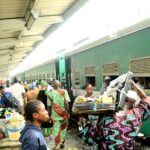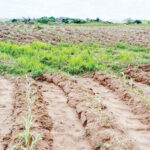At least, 15000 Nigerians have escaped to Cameroon and Chad for safety following recent attacks by Boko Haram insurgents in some states of Northeast Nigeria.
The United Nations High Commissioner for Refugees (UNHCR)’s Representative to Nigeria and ECOWAS, Antonio Jose Canhandula, disclosed this while speaking in Abuja on Friday, at the Pre-conference press briefing on the second regional protection dialogue on the Lake Chad Basin.
He said: “What is happening in the Lake Chad area remains a protection concern not only for us but also for the countries that have been hosting Nigerian refugees; that is Chad, Niger and Cameroon.
“If you have followed events lately in the last three weeks, there have been heightened security problems in Badakawa which have resulted in another 6000 Nigerian refugees fleeing into Chad.
“There have also been security problems in Rann and that resulted in 9000 Nigerians running into Cameroon. These situations have come to reinforce the need for us to sit again and see if, in the face of protection challenges for IDPs and Refugees, we have been doing a good job or can do better.”
While lamenting the regrettable situations of IDPs and refugees, he said humanitarian bodies in the country were preparing a 90-day response for around 300,000 Nigerian Internally Displaced Persons as a result of the current security situation.
Canhandula said there would be raising of fund and resources for the IDPs in Nigeria and Nigerian refugees in other Lake Chad countries.
Speaking earlier, the Minister of Interior Abdulrahman Dambazau said the second Regional Protection Dialogue had become imperative in order to review the implementation of the “Abuja Action Statement” arrived at after the first Regional Protection Dialogue in 2016.
According to him, the dialogue, which will hold from 28th to 29th January 2019, will bring together government officials from Nigeria, Cameroon, Niger and Chad as well as representatives of national, regional and international organisations, donor countries amongst others.
He added that the dialogue will “propose and seek adoption of a framework for comprehensive solutions that is in line with international principles and standards” amongst others.
Insurgency: 15000 Nigerians flee to Cameroon, Chad after recent attacks -UNHCR

 Join Daily Trust WhatsApp Community For Quick Access To News and Happenings Around You.
Join Daily Trust WhatsApp Community For Quick Access To News and Happenings Around You.


